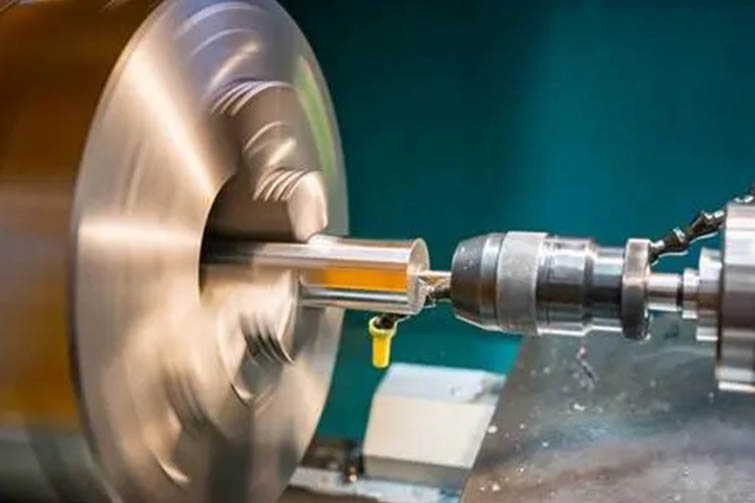

Applications of High-Standard Zero-Defect Components
The pursuit of zero-defect manufacturing sets a high benchmark for quality and reliability, making it crucial in industries where precision is non-negotiable. High-standard zero-defect components play a vital role across various sectors, ensuring optimal performance, safety, and longevity. This article explores the key application areas of these components and their significance in each field.
Aerospace and Defense
Aerospace Engineering
In aerospace engineering, the demand for zero-defect components is paramount. Aircraft and spacecraft operate under extreme conditions, including high speeds, intense pressure, and varying temperatures. Components must perform flawlessly to ensure the safety and reliability of flights. Zero-defect parts are crucial for engines, avionics, structural elements, and navigation systems, contributing to the overall safety and performance of the aircraft.
Defense Systems
Defense systems, including weapons, communication equipment, and surveillance systems, rely heavily on zero-defect components. The reliability and precision of these components can determine the success of critical missions and the safety of personnel. High-standard zero-defect manufacturing ensures that defense systems operate as intended, even in the most challenging environments.
Medical Devices and Healthcare
Medical Equipment
Medical devices and equipment, such as MRI machines, pacemakers, and surgical instruments, must adhere to the highest standards of quality and reliability. Zero-defect components are essential to ensure the accurate diagnosis and effective treatment of patients. Any failure in these components could have serious consequences for patient health and safety.
Pharmaceutical Manufacturing
In pharmaceutical manufacturing, zero-defect principles are applied to ensure the purity and consistency of drugs. The equipment used in the production process, including mixers, reactors, and packaging machines, must operate without defects to prevent contamination and ensure the efficacy of medications.
Automotive Industry
Vehicle Safety Systems
In the automotive industry, zero-defect components are critical for the safety and performance of vehicles. Safety systems such as airbags, braking systems, and electronic stability control rely on flawless components to function correctly. The reliability of these systems can save lives by preventing accidents or minimizing their impact.
Electric and Autonomous Vehicles
As the automotive industry shifts towards electric and autonomous vehicles, the importance of zero-defect components becomes even more pronounced. Electric drivetrains, batteries, sensors, and control systems must meet stringent quality standards to ensure the safety, efficiency, and reliability of these advanced vehicles.
Electronics and Consumer Goods
Consumer Electronics
Consumer electronics, including smartphones, laptops, and home appliances, are expected to perform reliably over their lifespan. Zero-defect components in these devices ensure durability and user satisfaction. High-quality manufacturing processes prevent defects that could lead to malfunctions or reduced product life.
Industrial Electronics
Industrial electronics, used in manufacturing, energy production, and automation, require zero-defect components for efficient and uninterrupted operation. Equipment such as PLCs (programmable logic controllers), sensors, and robotic systems depend on high-standard components to maintain productivity and safety in industrial settings.
Telecommunications
Network Infrastructure
The telecommunications industry relies on zero-defect components to maintain the integrity and reliability of network infrastructure. Components used in routers, switches, and transmission systems must perform without faults to ensure uninterrupted communication and data transfer. High-standard manufacturing is essential for the stability of global communication networks.
5G Technology
With the rollout of 5G technology, the demand for zero-defect components has increased. The high-speed, low-latency requirements of 5G networks necessitate components that can operate flawlessly under heavy data loads. Zero-defect manufacturing ensures the reliability and performance of 5G infrastructure.
Energy Sector
Power Generation
In the energy sector, zero-defect components are critical for the reliable generation and distribution of power. Components used in nuclear, hydroelectric, and renewable energy plants must adhere to strict quality standards to ensure safety and efficiency. Any defect could lead to significant operational disruptions and safety hazards.
Smart Grid Technology
The implementation of smart grid technology, which enhances the efficiency and reliability of power distribution, relies on high-standard components. Sensors, communication devices, and control systems in smart grids must operate without defects to optimize energy distribution and reduce downtime.
Conclusion
High-standard zero-defect components are indispensable across various industries, ensuring the safety, reliability, and performance of critical systems and products. From aerospace and defense to healthcare, automotive, electronics, telecommunications, and energy, the application of zero-defect principles drives innovation and excellence. As technology advances and industries evolve, the pursuit of zero defects will remain a cornerstone of quality and reliability in manufacturing.






